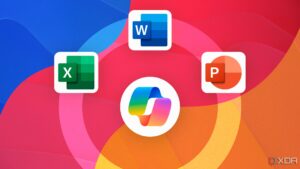Can AI from Copilot Attract Young Users to Microsoft 365?

The Shift from Microsoft Office to Google Workspace
A Changing Landscape
As Microsoft celebrates its 50th anniversary, it’s evident that its foundational products like Word, PowerPoint, and Excel are becoming less relevant, particularly to younger generations. Many young users, particularly those from Generation Z, have grown accustomed to alternatives like Google Docs. "We often used Google Docs for school projects, making it easy to collaborate and share work," shared a Gen Z student.
Resistance to Microsoft
Even in academic settings, professors are noticing a reluctance among students to adopt Microsoft Word despite it being listed in course syllabi. One Iowa State University professor reported that students find using Microsoft products to be a "culture shock." Issues often arise with file compatibility and conversion between different office suites, further complicating their experience with Microsoft programs.
The Cloud Storage Advantage
Microsoft provides a free version of Office apps but limits users to 5GB of cloud storage. In contrast, Google offers 15GB of free storage, which is more appealing to students using personal or educational Google Workspace accounts. This disparity in storage capacity has added to the appeal of Google’s ecosystem, making it the preferred choice for collaborative work.
Limited Exposure to Microsoft
For many young people, the primary instance of using Microsoft software is in their first jobs, where they encounter company-issued devices. Many resist switching from Google Docs to Word, as they are comfortable with Google’s interface. A young Redditor raised a thought-provoking question, asking if the trend of Gen Z workers avoiding Microsoft Word for convenience will continue, suggesting this may be a generational trend.
The Shift in Adult Preferences
Interestingly, even older generations that once relied heavily on Microsoft Office have started to shift towards Google Workspace, leaving their Microsoft applications underused. While some industries still favor Microsoft software, it’s clear that the younger demographic has a preference for alternatives, highlighting a significant challenge for Microsoft.
Introducing AI: Copilot
Microsoft’s Response
To compete with Google’s growing influence, Microsoft has integrated artificial intelligence into its software through a tool called Copilot. Satya Nadella, the CEO of Microsoft, recognized the need for this change and acted swiftly. Alongside its suite of products, Copilot allows users to access AI-powered features like generating custom formulas in Excel and assisting developers in coding through GitHub.
Copilot’s Impact
The use of Copilot has been embraced by many workers, with Nadella noting that it is becoming a daily tool for knowledge workers. In fact, Copilot’s AI features play a significant role in GitHub’s revenue growth, offering an insight into how AI can enhance user experience and collaboration.
Key Features of Copilot:
- Conversational AI: Users can engage with a chat interface for generating formulas or coding assistance.
- Integration: It is designed to seamlessly work within Microsoft’s existing products.
Google’s Competitive Edge
As Microsoft expands its AI capabilities, Google is similarly embedding its AI tool, Gemini, into its Workspace ecosystem. This approach appeals to younger users who have already established their habits around Google’s services for emails, documents, and presentations.
User Preference
Leif Nelson from Boise State University pointed out that using Google products is more intuitive for many users, as they naturally integrate into existing workflows. This compatibility reinforces the preference for Google among the younger demographic.
The Future of Office Software
Microsoft has a diverse portfolio that includes cloud computing through Azure, LinkedIn, Xbox, and Surface devices. However, its flagship products face challenges from younger generations whose digital habits are evolving rapidly. As Gen Z continues to take on leadership roles, one wonders whether Microsoft Office will remain relevant or if businesses will pivot entirely to Google Workspace.
The Changing Face of Digital Engagement
Today’s younger users often reject traditional search engines like Google in favor of platforms like Instagram and TikTok for information gathering. Microsoft and other tech giants must adapt to this evolving landscape to remain relevant and appealing to the next generation of workers.
In this age of rapid technological advancement, understanding the preferences and habits of younger users will be crucial for any company hoping to thrive in the future.






